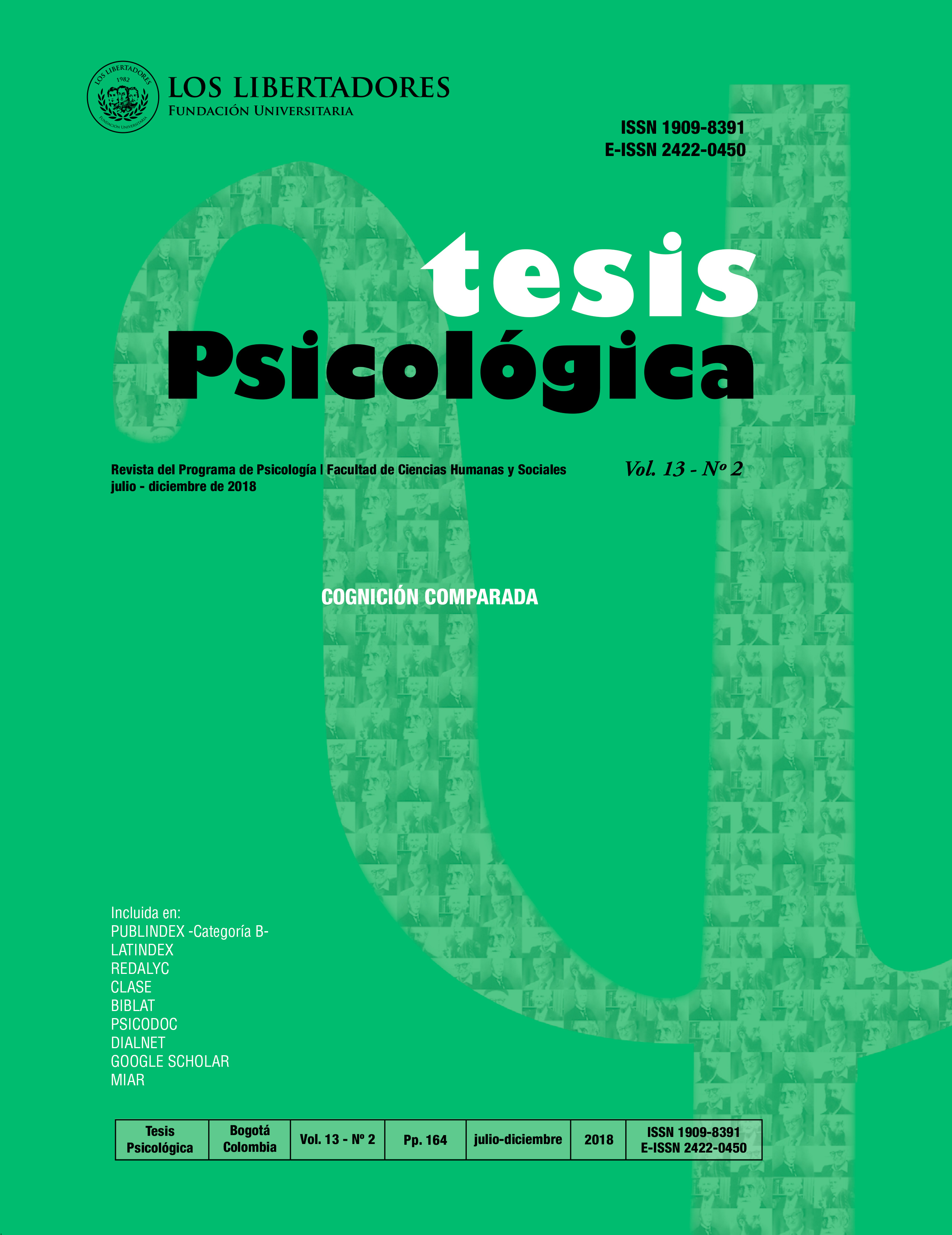Resumen
El trabajo que presentamos tiene como objetivo clarificar qué es un contexto en la psicología cognitiva del razonamiento. A pesar de que el término contexto se encuentra en la literatura de distintos psicólogos cognitivos, argumentaremos que no existe un análisis claro de qué se debe entender por ese término. Defenderemos que la noción de contexto hace referencia a distintas ideas, esto es, al contenido, al formato, a la perspectiva, a la naturaleza de los contenidos lógicos y al ambiente de los problemas. Sugeriremos que si bien estas ideas pueden tener traslapes, es poco claro que contenido, formato, perspectiva, naturaleza de los contenidos lógicos y ambiente sean nociones equivalentes. Hacer estas distinciones, argumentaremos, no sólo puede ayudar a entender qué significa un contexto, sino además puede ayudar a comprender de mejor manera los debates en torno a cómoes que los seres humanos razonamos o cómo debemos razonar.
Referencias
Bishop, M., Trout, J. D., 2005. Epistemology and the Psychology of Human Judgment, New York: Oxford University Press.
Buller, D. 2005. Adapting minds. Evolutionary Psychology and the Persistent Quest for Human Nature, Cambridge MA, The MIT Press.
Buller, D., Fodor, J., Crume, T. 2005. “The emperor is still under-dressed”, Trends in Cognitive Science, 9, 11, pp. 508-510.
Cosmides, L., Tooby, J. 1991. “Reasoning and Natural Selection”, Encyclopedia of Human Biology, vol. 6, pp. 493-503.
------. 1992. “Cognitive Adaptations for Social Exchange”. The Adapted Mind. Ed J. Barkow, et al. New York: Oxford University Press, 164-228.
------. 2005. “Neurocognitive Adaptations Designed for Social Exchange” Evolutionary Psychology Handbook. Ed D. Buss. New York: Wiler, 584-627.
Evans, J., Over, D. 1996. Rationality and reasoning. East Sussex: Psychology Press.
Fodor, J. 2000. “Why we are so good at catching cheaters”, Cognition, 75, pp. 29. 32.
Gigerenzer, G. 1991. “How to Make Cognitive Illusions Disappear: Beyond “Heuristics and Biases””. European Review of Social Psychology, 2: 83-115.
------. 1996. “On Narrow Norms and Vague Heuristics: A Reply to Kahneman and Tversky”. Psychological Review, 103: 592-598.
Gigerenzer, G., Hoffrage, U. 1995. “How to Improve Bayesian Reasoning Without Instruction: Frequency Formats”, Psychological Review, 102 (4), pp. 684-704.
Gigerenzer, G., Hug, K. 1992. “Domain-specific reasoning: Social contracts, cheating and perspective change”. Cognition, 43: 127-171.
Gigerenzer, G., Selten, R. (eds.). 2001. Bounded Rationality. The Adaptive Toolbox, Cambridge: MIT Press.
Gigerenzer, G., Sturm, T. 2012. “How (far) can rationality be naturalized?”. Synthese, 187: 243-268.
Gigerenzer, G., Todd, P., Grupo ABC.1999. Simple Heuristics That Make Us Smart. New York: Oxford University Press.
Goel, V. 2007. “Fractionating the System of Deductive Reasoning”, in E. Kraft, B. Gulyás & E. Pöppel (eds.), Neural Correlates of Thinking, Berlin, Springer, pp. 203-2018.
Hertwig, R., Gigerenzer, G. 1999. “The ‘conjunction fallacy’ revisited: How intelligent inferences look like reasoning errors”. Journal of Behavioral Decision Making, 12: 275-305.
Kahneman, D., Tversky, A. 1996. “On the reality of Cognitive Illusions”. Psychological Review, 103: 582-591.
Kahneman, D., Slovic, P., Tversky, A. 1982. Judgment under uncertainty: Heuristics and biases, Cambridge: Cambridge University Press.
Kruglanski, A., Gigerenzer, G. 2011. “Intuitive and deliberative judgments are based on common principles”. Psychological Review, 118: 97-109.
22
Tesis Psicológica vol. 13- nº2 julio-diciembre/18 pp. 1-22 ISSN 1909-8391
Piatelli-Palmarini, M. 2005. Los túneles de la mente. Barcelona: Crítica.
Samuels, R., Stich, S., Faucher, L. 2004. “Reason and rationality”. Handbook of Epistemology. Ed. Niiniluoto et al. Dordrecht: Kluwer, 131-179.
Stein. E. 1996. Without Good Reason. The Rationality Debate in Philosophy and Cognitive Science, Oxford, Clarendon Press.
Sturm, T. 2012. “The “Rationality Wars” in Psychology: Where They Are and Where They Could Go”, Inquiry: 66-81.


